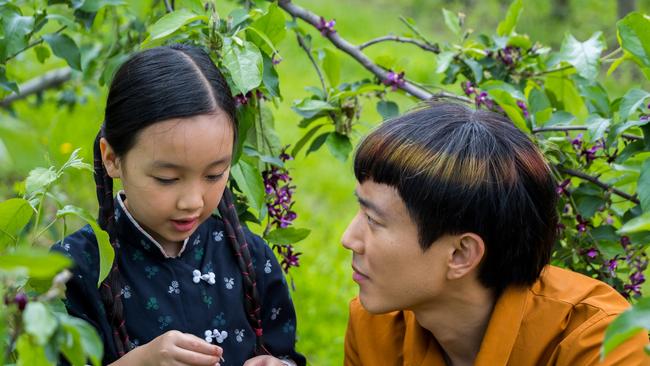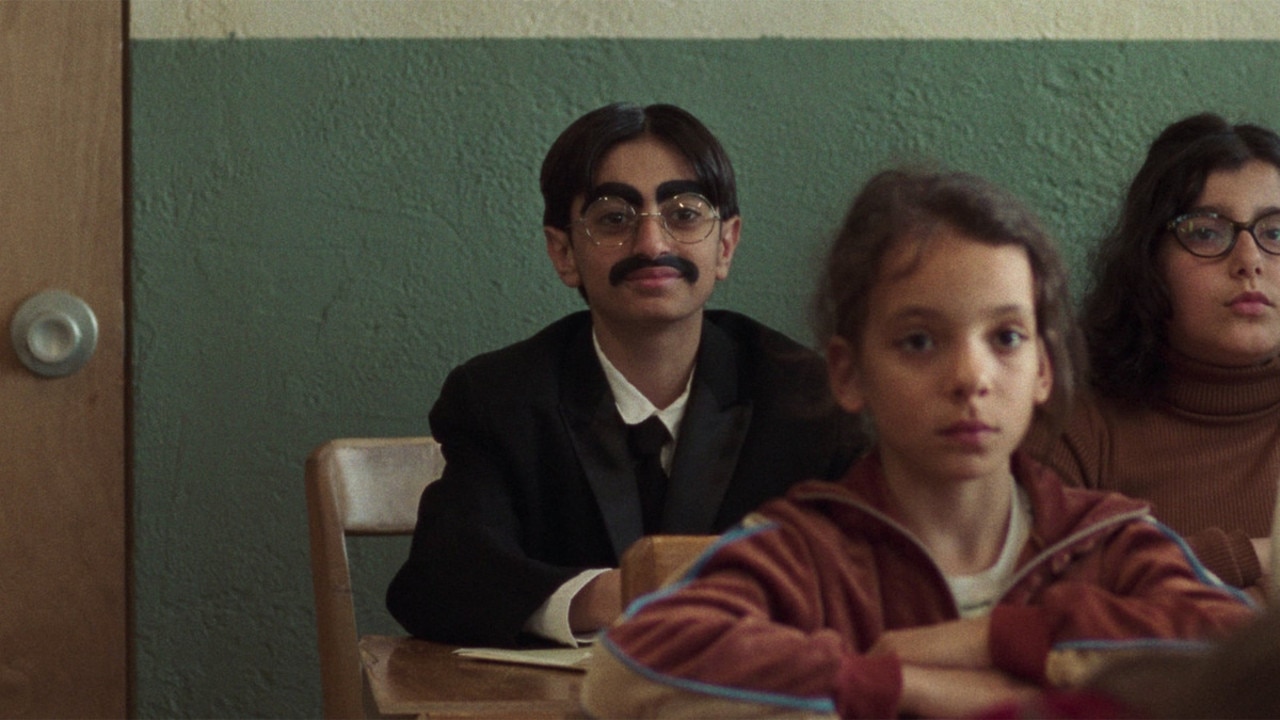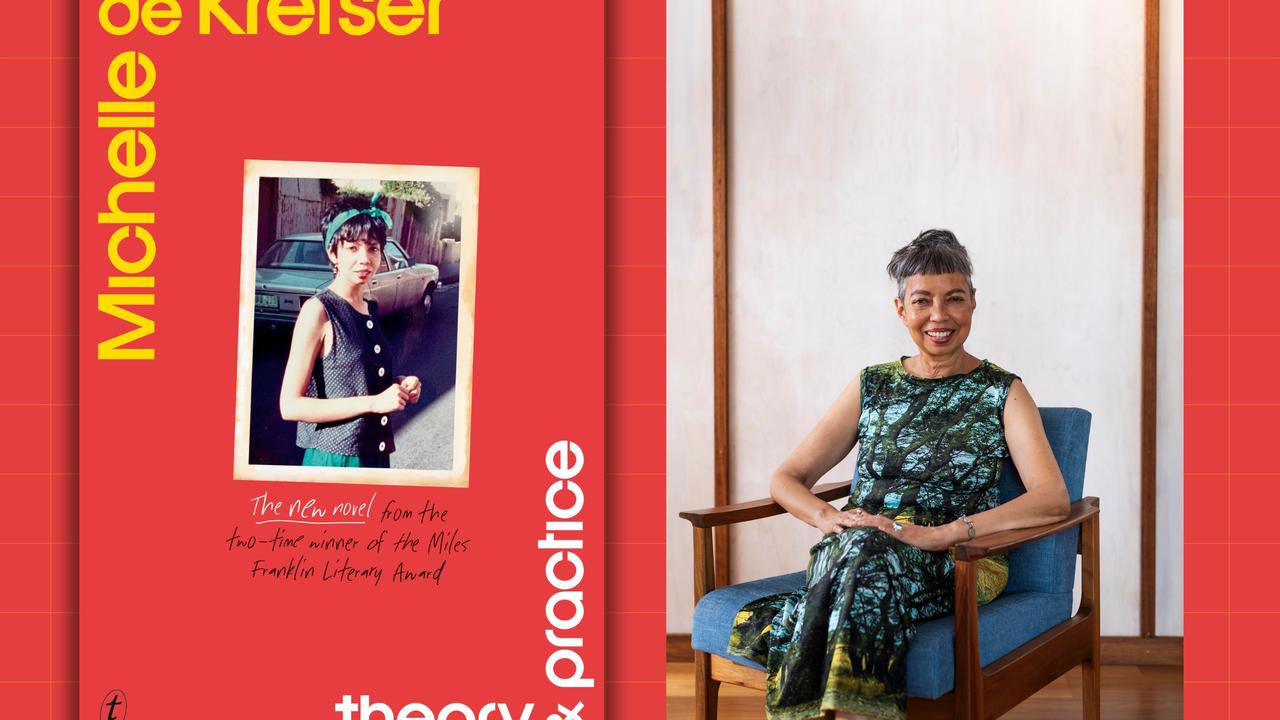Emotional sci-fi explores loss and humanity
After Yang is a strikingly original and intriguing tale of the near future when robots or “techno sapiens” are not at all unusual.

After Yang (PG)
In cinemas from Thursday
★★★★
Advanced technology accessible to the general public has become so common in recent years that we think nothing of the everyday information and connections provided by smart phones or computers. After Yang is a strikingly original and intriguing tale of the near future when robots, or androids or, as they’re called here, “techno sapiens”, are not at all unusual. These Artificial Intelligences can be used as servants or secretaries but, in the case of Yang, “he” (Justin H. Min) is a much-loved member of the family and companion for his little “sister”, Mika (Malea Emma Tjandrawidjaja), the adopted Chinese daughter of Jake (Colin Farrell) and Kyra (Jodie Turner-Smith). This happy arrangement is thrown into turmoil when Yang suddenly and unexpectedly malfunctions.
While the beloved Yang lies inert and comatose, it falls on Jake to organise repairs that will restore “it” and placate the desperately unhappy Mika. Easier said than done.
The establishment that sold Yang to Jake originally no longer deals in such things. An appeal for help to the rather dodgy Russ (Ritchie Coster) is unsatisfactory; Russ, a conspiracy theorist, keeps insisting that Yang is encrypted with some kind of spyware. More helpful is museum curator Cleo (Sarita Choudhury) who helps Jake access the stricken robot’s memory. And that is where Jake discovers Ada (Hayley Lu Richardson), a blonde barista who was Yang’s friend.
As Jake delves into Yang’s memory bank the film enters another world – a world of tea ceremonies and other trivia. Lines of dialogue are repeated, the aspect ratio of the movie screen shifts from Scope to the old-fashioned square 3 x 4 ratio and back again.
Directed by Korean-American Kogonada (no first name), After Yang is adapted from the short story “Saying Goodbye to Yang” from a collection, Children of the New World, by Alexander Weinstein.
Compelling and intriguing, the film continually shifts into unanticipated directions. Farrell gives a particularly fine performance as the increasingly frustrated and thwarted Jake.
-
Wheel of Fortune and Fantasy (Guzen to sozo) (M)
In cinemas from Thursday
★★★★
Ryusuke Hamaguchi, whose Oscar-winning Drive My Car has become such an art house success, despite its three-hour running time, scored another notable success last year when his earlier film, Wheel of Fortune and Fantasy, won the Golden Bear in Berlin. Of the two films, I personally prefer Wheel of Fortune; the director’s approach is very much the same – long takes, lots of talk – but the earlier film, which tells three separate stories that are loosely linked in terms of theme, is in many ways more satisfying.
In the first story, Magic or Something Less Assuring, Meiko (Kotone Furukawa), a model, is travelling in a taxi through the city streets at night with her friend Tsugumi (Hyunri). Tsugumi prattles on excitedly about a man she recently met.
They spent hours together, but refrained from having sex. Meiko gradually realises that the friend she is talking about is Kazuaki (Ayumu Nakajima), her former boyfriend, and after dropping Tsugumi off she heads for his place to confront him.
Their lengthy discussion is typical of the director’s approach to his characters. Three days later the three participants meet in a cafe and we are shown alterative versions of what happened next, leading to an enigmatic outcome.
Story two, Door Wide Open, is set in a college. Professor Segawa (Kiyohiko Shibukawa) always keeps his office door open when he is meeting with his students, which embarrasses Sasaki (Shouma Kai), who goes down on knees to beg for a pass mark – in vain. Sasaki has a married lover, Nao (Katsuki Mori), and he persuades her to set a honey trap for the teacher.
During their meeting – she is a former student of his – Nao reads a highly erotic passage from Segawa’s award-winning book while recording everything on her phone and hoping he’ll attempt to seduce her. The conclusion to this episode is satisfactorily surprising.
In the final episode, Any Day Now, Natsuko (Fusako Urabe), a gay woman, attends a school reunion, Class of 1998, hoping to see Mika, her former lover, but without success. At a suburban railway station she encounters a woman she thinks is Mika and is invited by her back to her home. During the ensuing conversation we discover that not only is the woman not Mika – her name is Aya (Aoba Kawai) – but they didn’t even go to the same school. Despite that, they embark on a fantasy game.
The film’s Japanese title literally means “coincidence and imagination”, which is really a better description of the film’s content than the English title. Because each of the three stories is given equal weight and substance, they all engage highly effectively. This is an intriguing, involving work from a major filmmaker.
-
When the Camera Stopped Rolling (M)
In cinemas
★★★★
The thoroughly intriguing documentary When the Camera Stopped Rolling profiles the careers of two women, mother and daughter, who were both at different times deeply involved in the Australian film industry. The film’s director, Jane Castle, first tells the story of her mother, Lilias Fraser, who started making documentary films in 1964 with Water Birds of the Inland. In her younger years, Lilias had travelled to Paris to study at the French film school IDHEC. This was the time of the French New Wave, and she met several of the famous directors who emerged back then. She was followed to France by her husband, Norman, with whom she had a problematic relationship. Back in Australia she made more documentaries but was refused a job at the Commonwealth Film Unit because, she was told, a woman wasn’t strong enough to carry a camera. Later, in 1978, she handled distribution for the Sydney Filmmakers Co-op.
Jane followed in her mother’s footsteps. She enrolled in the Film and Television School, became a cinematographer, and shot feature films including Dead to the World (1990) and A Fistful of Flies (1996) in Australia and, in the US, Leprechaun 2 (1994), as well as a number of music videos for Prince, k.d. lang and AC/DC. She later quit making films to run the Total Environment Centre, while her mother taught film at the Australian Film and Television School.
The intertwining careers of mother and daughter, which conclude in a bizarre tragedy, make for a compelling, intimate and insightful documentary.




To join the conversation, please log in. Don't have an account? Register
Join the conversation, you are commenting as Logout